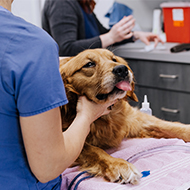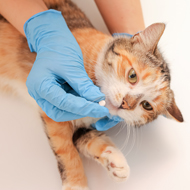Infected bats are typically found in late summer near rivers or canals, perhaps because Daubenton's bats feed on insects over bodies of water.
Vigilance needed despite low risk of rabies in humans - APHA
Two bats found in the north of England have tested positive for European bat lyssavirus type 2 (EBLV-2), the Animal and Plant Health Agency (APHA) reports.
The virus presents a 'low but real risk' of rabies in people, health officials wrote in the latest Vet Record letters. Veterinary surgeons are advised to only handle carcases while wearing gloves and using other suitable personal protective equipment (PPE).
Rabies vaccination and post-exposure prophylaxis (PEP) 'must be considered' in general practitioners following contact with bats. All human exposure to bats - particularly involving scratches or bites - must be investigated without delay.
One of the bats was found by members of the public in West Yorkshire on 5 August and died three days later. It was alive but showing signs of malnourishment and dehydration. The second infected bat was found by an angler in Northumberland on 27 August - grounded and in distress, dying two days later.
Both carcases were submitted to APHA and confirmed to be Daubenton's bats. Testing came back positive for EBLV-2. There was no known human exposure (bites or scratches) but PEP was offered as a precaution.
Not all bat species are associated with lyssavirus infections. EBLV-2 was first detected in Daubenton's bats in 1996 and since then there have been 15 confirmed UK cases in bats (including the two most recent cases) and one human death due to rabies following infection with EBLV-2.
Infected bats are typically found in late summer near rivers or canals, perhaps because Daubenton's bats feed on insects over bodies of water.
APHA should be contacted immediately regarding bats showing behavioural problems such as aggression, disorientation and difficulty flying (which may result in injuries). Untrained personnel should not handle sick or dead bats. Carcases should also be submitted to APHA immediately for testing.
Further information on submitting bat carcases can be found here: https://www.gov.uk/government/publications/bats-submission-for-rabies-screening
Image © Gilles San Martin from Namur, Belgium/Wikipedia/CC BY-SA 2.0







 The Greyhound Board of Great Britain has published new vaccination guidance, with all greyhounds registered from 1 January, 2027 required to have the L4 leptospirosis vaccination, rather than L2.
The Greyhound Board of Great Britain has published new vaccination guidance, with all greyhounds registered from 1 January, 2027 required to have the L4 leptospirosis vaccination, rather than L2.
